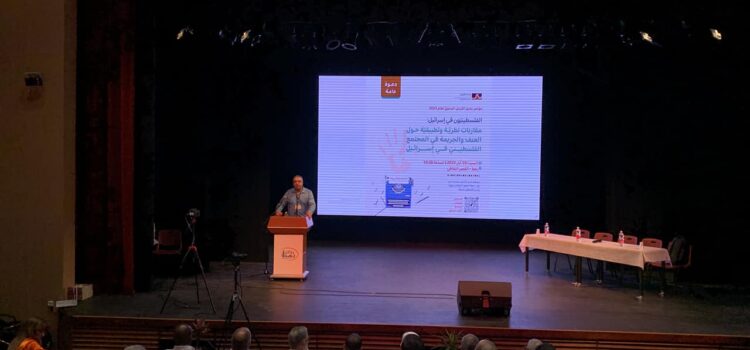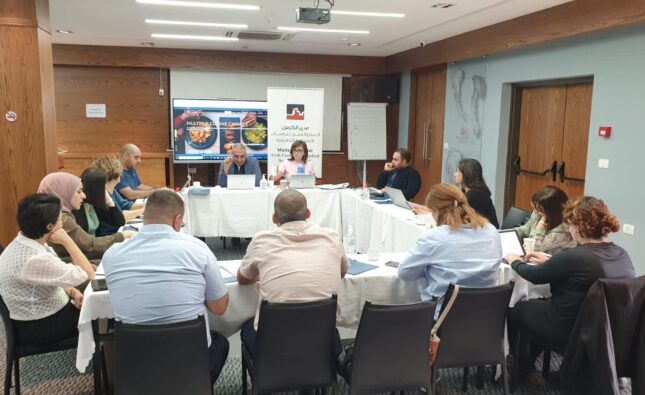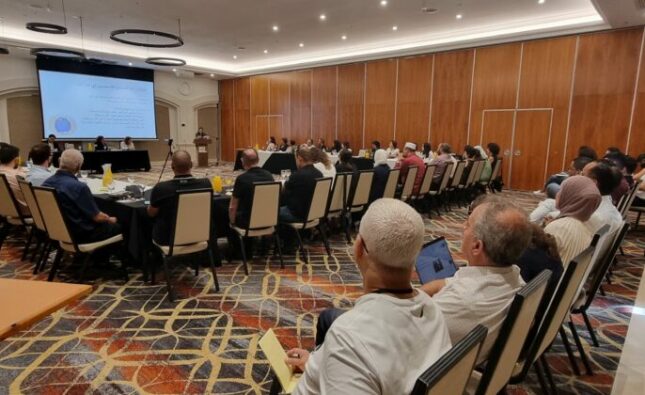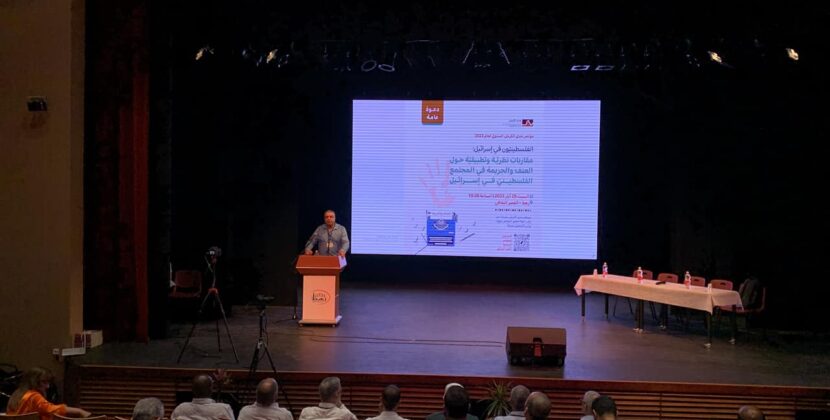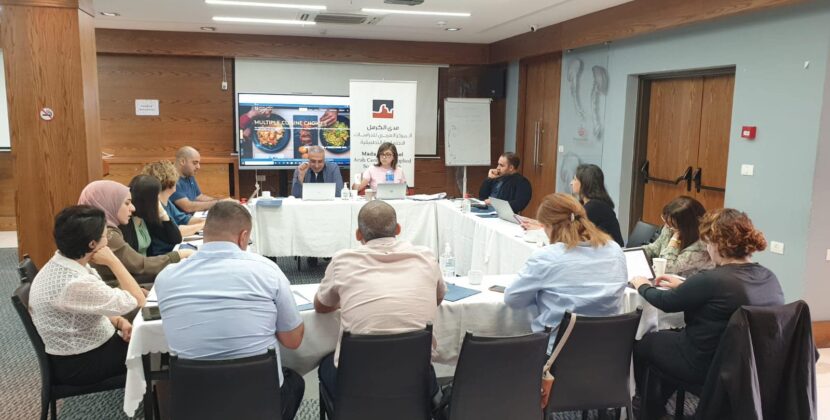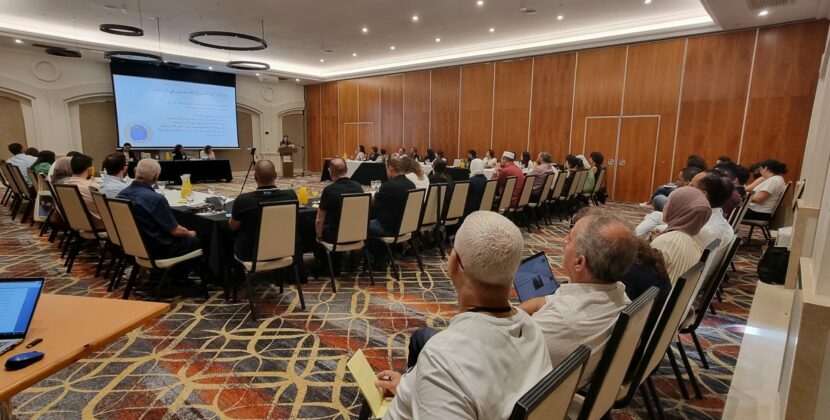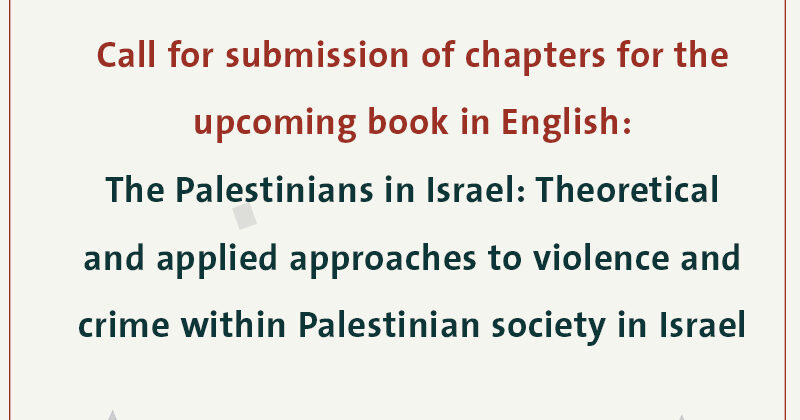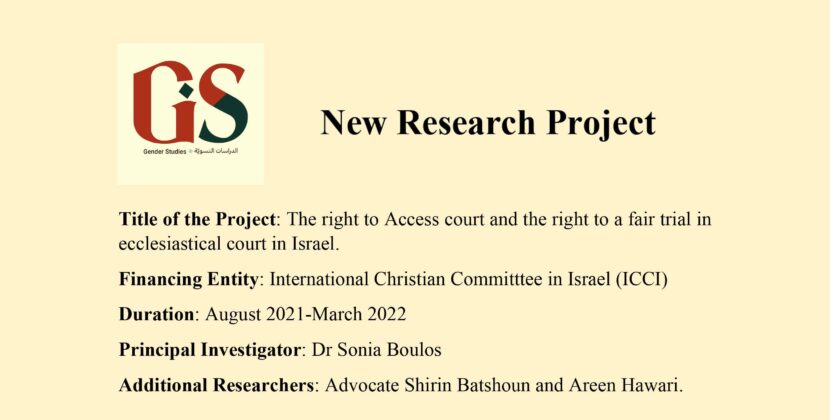On the 28th of May 2022, the Mada al-Carmel center for applied social research held its annual conference in the Cultural Palace of Rahat. The key theme of this year’s conference was the “theoretical and pragmatic approaches to violence and crimes in the Palestinian community in Israel”. The main objective of the conference was to tackle the subject of crime and violence in the Palestinian community in Israel from a different angle based on the latest research and studies that offer such perspectives.
This conference represents a direct continuation of Mada al-Carmel’s commitment to support the cultivation of new approaches to the understanding of the political, social and economic situation of Israel’s Palestinian community.
The conference, gathering a significant number of participants both in person and through live video conferencing, began with an opening remark by Mohanad Mustafa, Director of Mada al-Carmel. During his intervention, he underscored the importance for the conference to be held in the Negev region and more specifically in the city of Rahat, especially since the outpouring of bloody provocations and collective stigmatization accusing the region of violence and crimes. Mustafa concluded his speech by highlighting the key theme of the conference that will be explored by the participants: the relationship between violence and crime in the Palestinian community and the political regime.
The inauguration of the conference was followed with a welcoming speech by Shaykh Fayez Abu Suhayban, mayor of Rahat. During his intervention, he provided insights on the debated topic – crime and violence within the Palestinian community- and highlighted the indispensable role of the conference in raising awareness on this issue among all generations, youth and adults alike.
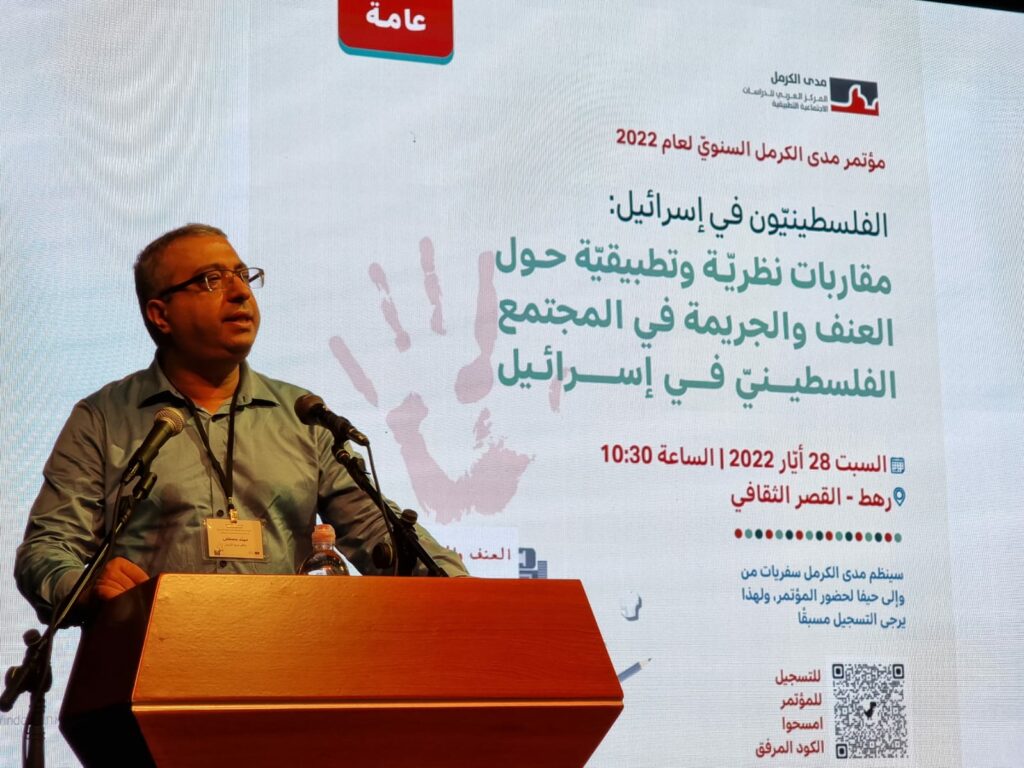
Professor Naderh Shalhoub-Kevorkian, Mada al-Carmel’s executive director, after greeting the audience and reemphasizing the importance of the topics being covered during the conference, drew attention to the concept of structural violence and raised questions about colonial settlement to lead the audience to a better understanding of the violence taking place. She then developed on the impact of colonialism and the political system in place on the violence and crime in the Palestinian community inside Israel. She concluded her intervention by stressing that in the context of nations facing colonization, knowledge is a powerful weapon against crime.
Dr. Mtanes Shehadeh, director of the policy unit of Mada al-Carmel, introduced and analyzed the results of a survey on the political situation and violence. He started by presenting the survey questions, aiming to provide insight into the political issues and society changes that have occurred over the years. The results of the survey were then presented in the form of questions examining the different factors influencing violence and crime in the Palestinian community of Israel. The survey results revealed a phenomenon of internalization by the Palestinian community of the Israeli institutions and police allegations which claim that social and cultural factors in the Arab community are the central factors behind the spread of violence and crime in the Palestinian community of Israel.

The first panel discussion entitled, “Comparative political and theoretical approaches to violence”, was moderated by Dr. Rawayah Abu Rabi’ah, a lecturer at the law school at Sapir College. Shahrazad ‘Awdeh, a PhD candidate at the department of Sociology and Anthropology at the Hebrew University in Jerusalem, gave a presentation titled: “Community experiences in the fight against crime and violence”. During her presentation she focused on the critical importance of identifying the roots of the problem to find community-based solutions and develop a better understanding of the community’s situation. Moreover, she emphasized the importance of academic research in listening to the state of the community by referring to international cases that emphasize the role that groups within the community can play in combating violence through the concept of restorative, not only punitive, justice.
Mirvat Abu Hadduba, a PhD candidate at the Department of Politics and Government at Ben-Gurion University in Beersheba, gave a presentation entitled “Minorities and the police system: The Arab minority – overwhelming violence and police absence“. Abu Hadduba discussed the relationship between police and minorities in global terms, arguing that to understand the relationship between the police and the Palestinian community in Israel one should first understand the historical and political background of the establishment of the State of Israel. In this regard, special attention should be paid to topics such as the Nakba, the military rule, the security threat and the political structure of the state of Israel, of which the police are an integral part. And that is without mentioning the lack of confidence in the police given recent hostile attitude and practices toward the Palestinian community.
Hiba Zaydan, a therapeutic social worker, and a PhD candidate in the School of Social Work at the Hebrew University of Jerusalem, gave a presentation entitled: “The relationship between exposure to psychological stress due to socio-political issues and domestic violence among Palestinians”. Zaydan argued that the very fact of being part of a minority group can generate depression and psychological disorders and emphasized that there is a clear link between individually or collectively experienced racism and domestic violence.
Shaykh Raed Salah, President of the committees of peace promotion, [Ifshaa al-Salam] part of the High Follow-up Committee, commented on this session. After welcoming the audience, he discussed the importance of the committees of peace promotion and presented its operational and strategic plans. Shaykh Raed elaborated on the establishment of these committees and clarified the upcoming challenges they will be facing. He pointed out that the committees’ working strategy will be focused on developing mechanisms of prevention and deterrence, but also restoration.
Dr. ‘Areen Hawwari, director of the Gender Studies Program in Mada al-Carmel, moderated the second panel discussion entitled: “Systematic and knowledge-based approaches to studying violence in the Palestinian community.” During her intervention, she stressed the importance of reference and data to document crimes against women over the years and facilitate research on violence against women.
Dr. Muhib Zaydan, lecturer at the Department of Economics at Knox College in Illinois, United States, gave a presentation entitled: “Developing strategies and mechanisms for documenting homicides: Lessons drawn from a research project on femicides in Palestine before the Nakba”. He gave an overview of the research’s preliminary results and numerous goals, including ordering the archives and information chronologically. Zaydan also emphasized the importance of elements that would provide a better understanding of the issue. He also suggested working on comprehensive and reliable references to develop and update data systematically. Finally, he stressed the importance of documenting crimes against women committed before the year 2000.
Dr. Maysam Bishara, PhD, at the Faculty of Education at the University of Haifa, presented a paper entitled: “The Israeli academic rhetoric on the phenomenon of violence in the Palestinian community inside Israel: Survey and preliminary results”. Bishara’s study consists of a comparison between violence in the Arab community and violence in the Jewish community of Israel. She presented data and elaborated on the number of published articles and theses on the matter, the authors’ nationality, the incident location as well as the key statements of the various publications. She added that, compared to the research efforts on organized crime, no serious studies were dedicated to everyday violence. She finally presented how this research will open the door for future research on the issue.
Lawyer Rida Jaber, Director of the Aman Center – the Arab Center for a Safe Society –suggested discussing the concept of police from a social and not only political perspective, saying that the analysis of the ‘police concept’ requires a deep and complex sociological analysis of the given contexts. According to her, some of the elements that should be taken into consideration are the formation of the Zionist Jewish identity, the specificities of the Israeli police mentality, individual psychological elements and the structure of the State itself.






